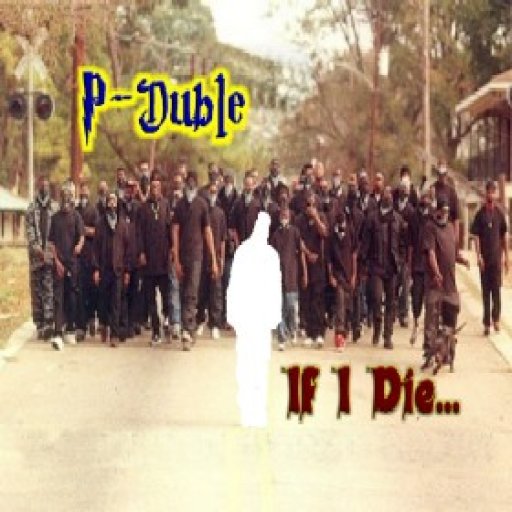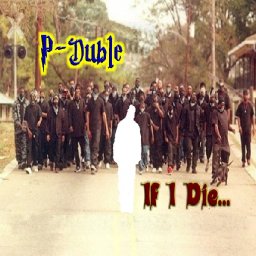
About P-Duble
P-Duble
As one of the hottest up-n-coming artists in the industry…and more than 10 years older than most of his comrades, P-Duble has experience and maturity to bring to the table.
P-Duble is thirty-four and was almost 10 years removed from his last release, “Birth Uv A G,” in 1999. The record, and P-dub’s voice—classics in the now popular, but still young, Christian Hip-Hop World—set the stage for his hiatus and allowed him to learn some important life-lessons until the time was right for him to step back behind the microphone.
Thanks to the persistence of such cultural icons as Sup C, Mr. Solo and T-Bone and reinforced by a mainstream culture that loves to occasionally dust off classic adages, P-dub has never really left the game, or missed a meal. He couldn’t be happier that the Lord has continued to fuel his calling into the hip-hop ministry.
“I appreciate that the Lord has allowed me to still stay in this game and I thank Him for the blessings He has bestowed upon me,” P-dub says. “Not talking financially, just talking about my family, life and being relevant in His scheme.” P-dub hasn’t relied on samples alone to stay and get back into the game. He came-back on the scene with a vengeance with his 2006 release, “No One.” This self-produced project tossed itself into more than 10,000 heads and set the stage for what has been a spiritual re-awakening on a major hip-hop scale.
As for the rest of his history, P-dub first formed a group with some of his boys called “Dead On Arrival,” back in 1990. P-Duble dropped himself from the group and saw the remaining duo sign with Philadelphia-based Bodybag Records and release an album…and then…saw it collapse on the shelves. P-Duble (known as Lil’ Pookie at the time) then proceeded to drop his own underground projects, such as “Blak + Wyte” in 1992, “Bottom of my Boot” in 1994, “Pooc OG: tha’ gangsta’ chronicles” in 1995 and then “Birth Uv A G” in 1999.
In between these individual releases, he combined with Michigan-based Luppy to form the “Outsiders.” They worked together and collaborated on one-project that was released in 1996 and opened-up the door for Luppy to jump onto the scene with his own group, “LPOutsiders.”
Lup and P-dub saw a future together, but the business and differing aspirations ultimately took a toll on their relationship. “That relationship got really messed-up for awhile,” P-dub says. “I was so immature that I wouldn’t allow myself to see eye-to-eye with him, which was a mistake, because he was right and he was so talented and was really the heart and soul of what we were doing. The music business is notorious for breaking up relationships because of everything that it entails. Ego, money. Those are usually things that are pieces of the problem, but it never should’ve been, especially with where we were both coming-up from and the fact that we were both Christian artists.”
P-Duble laughs matter-of-factly at the situation, and then turns his attention to today. He’s preparing to enter the game with a thump through his reincarnated Pike Street music, the same company that released the final three of his previous releases back in the day.
“One of the singles off this one is called ‘This Is Why…’ and features Mims and is based on the concept of the old records and MC’s.” The album is titled “If I Die…,” but P-dub believes that hip-hop is ready for someone to push the music forward creatively. “These topics they talkin’ about. We already covered that in the 80’s and 90’s. You know, ‘I Get Money?’ Why hasn’t the artist progressed conceptually? They’re not diggin’ deep enough. I wanted to dig deep and come up with neat concepts and things that haven’t been done before.”
The high-pitched excitement that characterized his delivery as an MC also shows up in his speaking voice. In discussing his whereabouts, he’s honest to a possible fault. He admits that he was and still is hesitant to pick up the mic as a mature adult because many may not want to hear a grown man rap.
However that hasn’t been the case at all. The public’s reaction has surprised even P-dub himself.
“The response has been crazy,” he says about his comments in other interviews, which generated a great deal of fan reaction. “They didn’t touch on the age thing. Maybe it’s not as big of a deal as I thought it was, but then again the Lord has a way of over-coming even the most ominous of obstacles…there isn’t any that He can’t overcome. I mean, Jay-Z is older than me. I’m thirty-four. He says he’s thirty-eight. We know Dr. Dre is in his forties. Even 50 is in his thirties. Personally, I would like to forget bout that and listen to the music. If it’s hot, it’s hot.”
Influences
Recently Rated:
stats:
Curse of the Me-Album

You know what I like about working for myself? No dress code.
You wear what you want every day of the week and nobody much cares. Frankly, it's gotten to the point where if I've got long pants on between Memorial Day and Labor Day, my kids want to know who I'm meeting with. (If I'm wearing a tie, they want to know who died.)
And so yesterday evening, when I arrived home wearing pants that weren't jeans and shoes that weren't sneakers, my family knew that something was up.
"Where'd you go today?," my ten-year-old son Brayden asked over dinner. I told him that I drove to see someone in Pickerington (pronounced "Pink-er-ington" for those of you not-raised in normal-speaking parts of the world), a city about 20 miles away.
"How long did it take you to drive there?," he asked.
"About an hour each way," I said. "Rounding-up the time and not explaining that there was heavy traffic while I was on the road.
I could see that the wheels were now turning inside Brayden's fourth-grade brain.
"Wait a second," he said. "Why did it take you one hour to drive just 20 miles, when we drove to New York City in 8 hours… and that's a thousand miles away?"
Now I was confused. Even ignoring the implication that my Ford Explorer could ever reach 250 miles per hour – something I doubt it could do if you dropped it out of an airplane – we live in Columbus, Ohio; New York City is only about 600 miles away.
So I asked him, "What makes you think New York is a thousand miles from here?"
"Easy. In that song Hey There Delilah, the guys sings: 'What's it like in New York City? I'm a thousand miles away, but girl tonight you look so pretty.'"
His reasoning was based on a bad assumption, of course, but I had to admit, in a kind of topsy-turvy, me-centric way, it almost made sense. (The thought crossed my mind that he may play an important media relations role in some future White House administration.)
For an eight-year-old, it's pretty normal to assume that the world revolves around you and everybody else shares your same perspective. Unfortunately, for musicians of any age, the same (flawed) assumption is often at work.
Here's what I mean. Many musicians – whether they say it out loud or even consciously realize it – work from the belief that the way they're organized, the people they've got on board, and the products and services they sell, are of keen interest to their fan-base.
It's a bad assumption. Here are some examples of how it often plays out:
- Your musical content formula matches the structure of your band. Time, Inc. publishes Sports Illustrated for Kids, Woman's Weekly and Land Rover World. And yet I think you'd agree that if they ever tried to combine the three into one magazine, they'd be very successful in appealing to nobody.
By the same token, and while it's fine to have a company that sells auto insurance to consumers, health insurance to small businesses, and financial aid advice to college students, if you try to cover all those topics for all those audiences in the same publication – simply because it's what you do – you'll be wasting your time.
Pick a narrow content focus and stick to it time after time. How narrow? As narrow as you think possible, and then a few steps more narrow than that.
- Your music is influenced by several different sources that you're probably not even aware of. Some musicians even rotate contributors with the idea of "getting input from everybody possible and letting our fans get to know us." That's a nice way to get buy-in and participation from within your organization, but again, it's a capital-L-Loser from the point of view of your fan-base, who don't much care about any of that.
Settle on a clear, consistent, recognizable sound and stick to it time after time. Be willing to ignore certain groups of potential fans in the name of building a loyal following among others.
- Your music's topics and content all point back to you. As a marketing person myself, I appreciate the urge to keep citing your experience, pointing out your capabilities and gushing over your own wonderfulness when writing your music. After all, you may be thinking, isn't the promotion of our music the point of all of this in the first place?
Yes it is. The problem, however, is that the minute your fans see you wander from the bright and cheery land of useful, unbiased information into the cold and calculating campaign bus of self-promoting half-truths, you'll lose them (sorry about the metaphors; I think I'm watching too much political coverage).
Remember, you're building relationships, not closing today's sale – and relationship building is a strategy which in the long run is easier, more profitable and more long-lasting than trying to work the room at every turn.
Here's the bottom line. If you want people to anticipate, open, read and pass along your music (and I'm guessing that you do), you need to put yourself in the shoes of your readers. Try to offer music that will help them live their lives better or will influence them in a way that you may never know, and your next fan will never be more than a few miles away.






